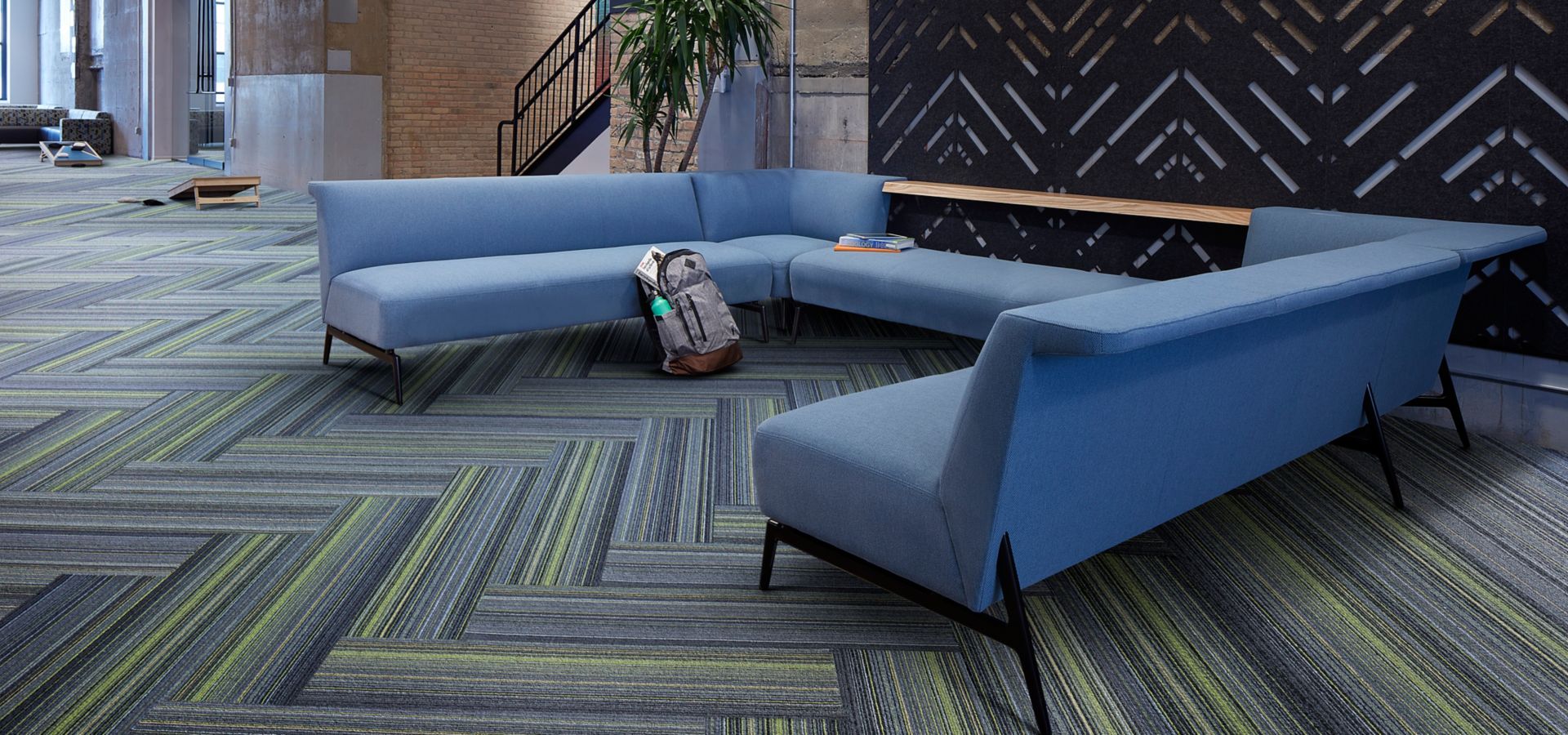Select a Location
It’s flooring—and then some. Made for More.

Interface Publishes Embodied Carbon Metrics on All Design Studio Floor Plans
Addition helps keep sustainability top-of-mind, clearly communicates flooring’s carbon impact
ATLANTA – October 10, 2024 – Interface, Inc. (NASDAQ: TILE), the global flooring solutions company and leader in sustainability, today announced that it is making it easier for customers to understand the carbon impact of their product selections by including project-specific embodied carbon metrics on all floor plans created by the Interface Design Studio (IDS). The company is using a unique combination of technology and data to calculate the carbon footprint of a project’s flooring. As a result, Interface is the first flooring manufacturer to deliver embodied carbon metrics as standard on its floor plans, helping customers understand how Interface can positively contribute to their project’s sustainability and carbon goals.
Each IDS floor plan now includes a dynamic bar graph that showcases the total embodied carbon value for all Interface products used within a project, including carpet tile, LVT, and nora® rubber. The floor plan also features an industry average embodied carbon value for the project’s flooring to clearly communicate the carbon footprint savings customers can achieve by partnering with Interface.
“More than ever, our customers recognize their role in driving climate action and are looking for opportunities to reach their own bold sustainability goals,” said Nigel Stansfield, Chief Innovation & Sustainability Officer at Interface. “With the addition of project-specific embodied carbon metrics on all IDS floor plans, designers around the world can now more readily compare and balance the impact of their projects across multiple criteria, including sustainability, cost, performance, and aesthetics.”
The addition of embodied carbon metrics on IDS floor plans demonstrates how Interface supports its customers at every stage of the project life cycle. Previously, designers who wanted to know the carbon impact of the flooring in a project had to research the carbon footprint of the various styles used in the design, then manually calculate each product’s embodied carbon value based on the quantity used. Because these calculations are now woven into IDS’ floor plan creation, customers can quickly obtain a complete picture of their project’s carbon impact without any extra time or effort.
Interface sources the flooring-specific embodied carbon data using the Embodied Carbon in Construction Calculator (EC3), the cornerstone tool of nonprofit Building Transparency. The company is a founding partner of the EC3 tool, which hosts the largest open-access database of digital, third-party verified Environmental Product Declarations, helping support comparison and selection of low-carbon materials and products.
Interface’s move to share project-specific embodied carbon metrics aligns with its commitment to be ‘all in’ on solving the climate crisis and to focus on direct carbon reductions, rather than offsets. By amplifying transparency, the company aims to accelerate collective action within the A&D community and help customers better understand the role their flooring selections play in achieving low-carbon design.
To learn more about IDS and its service offerings, visit interface.com/ids. For more information about Interface’s sustainability journey, visit interface.com/allin.
About Interface
Interface, Inc., (NASDAQ: TILE) is a global flooring solutions company and sustainability leader, offering an integrated portfolio of carpet tile and resilient flooring products that includes Interface® carpet tile and LVT, nora® rubber flooring, and FLOR® premium area rugs for commercial and residential spaces. Made with purpose and without compromise, Interface flooring brings more sophisticated design, more performance, more innovation, and more climate progress to interior spaces. A decades-long pioneer in sustainability, Interface remains “all in” on becoming a restorative business. Today, the company is focusing on carbon reductions, not offsets, as it works toward achieving its verified science-based targets by 2030 and its goal to become a carbon negative enterprise by 2040.
Learn more about Interface at interface.com and blog.interface.com, nora by Interface at nora.com, FLOR at FLOR.com, and the company’s sustainability journey at interface.com/sustainability.
Follow us on Facebook, Instagram, LinkedIn, X, and Pinterest.
###
